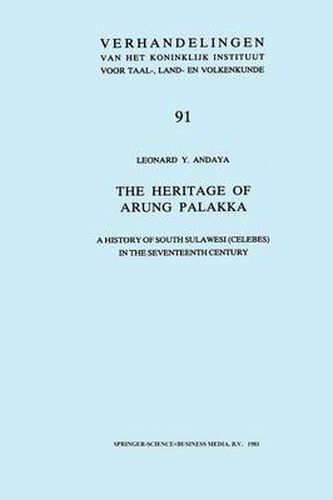Readings Newsletter
Become a Readings Member to make your shopping experience even easier.
Sign in or sign up for free!
You’re not far away from qualifying for FREE standard shipping within Australia
You’ve qualified for FREE standard shipping within Australia
The cart is loading…






This title is printed to order. This book may have been self-published. If so, we cannot guarantee the quality of the content. In the main most books will have gone through the editing process however some may not. We therefore suggest that you be aware of this before ordering this book. If in doubt check either the author or publisher’s details as we are unable to accept any returns unless they are faulty. Please contact us if you have any questions.
to use the Dutch presence to institute far-reaching innovations in his society. It became apparent that, while the Company’s initial involve ment with South Sulawesi had required some military action, its sub sequent activities were often limited to that of arbiter in local disputes. Y et its approval was an essential element without which no local prince could exercise authority confidently. The reputation of the Company helped to sustain its position and that of anyone fortunate or clever enough to become linked with it. Arung Palakka’s repeated references throughout his life to this link served a dual purpose: it reaffirmed his continuing devotion and loyalty to the Company, while reminding the people of South Sulawesi of the weapon which he could wield if neces sary to maintain power. Bearing the Company’s trust as a right, Arung Palakka was able to introduce changes with little real opposition from within South Sulawesi. The Company has often been blamed for radical innovations in Malay-Indonesian societies, but as this study shows, in South Sulawesi at least the initiative clearly carne from a local ruler. Only research in other areas influenced by the Company’s presence will demonstrate whether or not the South Sulawesi experience was unique. A secondary but nonetheless important reason for this study was to examine the roots of the large scale emigrations from South Sulawesi in the second half of the 17th century.
$9.00 standard shipping within Australia
FREE standard shipping within Australia for orders over $100.00
Express & International shipping calculated at checkout
This title is printed to order. This book may have been self-published. If so, we cannot guarantee the quality of the content. In the main most books will have gone through the editing process however some may not. We therefore suggest that you be aware of this before ordering this book. If in doubt check either the author or publisher’s details as we are unable to accept any returns unless they are faulty. Please contact us if you have any questions.
to use the Dutch presence to institute far-reaching innovations in his society. It became apparent that, while the Company’s initial involve ment with South Sulawesi had required some military action, its sub sequent activities were often limited to that of arbiter in local disputes. Y et its approval was an essential element without which no local prince could exercise authority confidently. The reputation of the Company helped to sustain its position and that of anyone fortunate or clever enough to become linked with it. Arung Palakka’s repeated references throughout his life to this link served a dual purpose: it reaffirmed his continuing devotion and loyalty to the Company, while reminding the people of South Sulawesi of the weapon which he could wield if neces sary to maintain power. Bearing the Company’s trust as a right, Arung Palakka was able to introduce changes with little real opposition from within South Sulawesi. The Company has often been blamed for radical innovations in Malay-Indonesian societies, but as this study shows, in South Sulawesi at least the initiative clearly carne from a local ruler. Only research in other areas influenced by the Company’s presence will demonstrate whether or not the South Sulawesi experience was unique. A secondary but nonetheless important reason for this study was to examine the roots of the large scale emigrations from South Sulawesi in the second half of the 17th century.